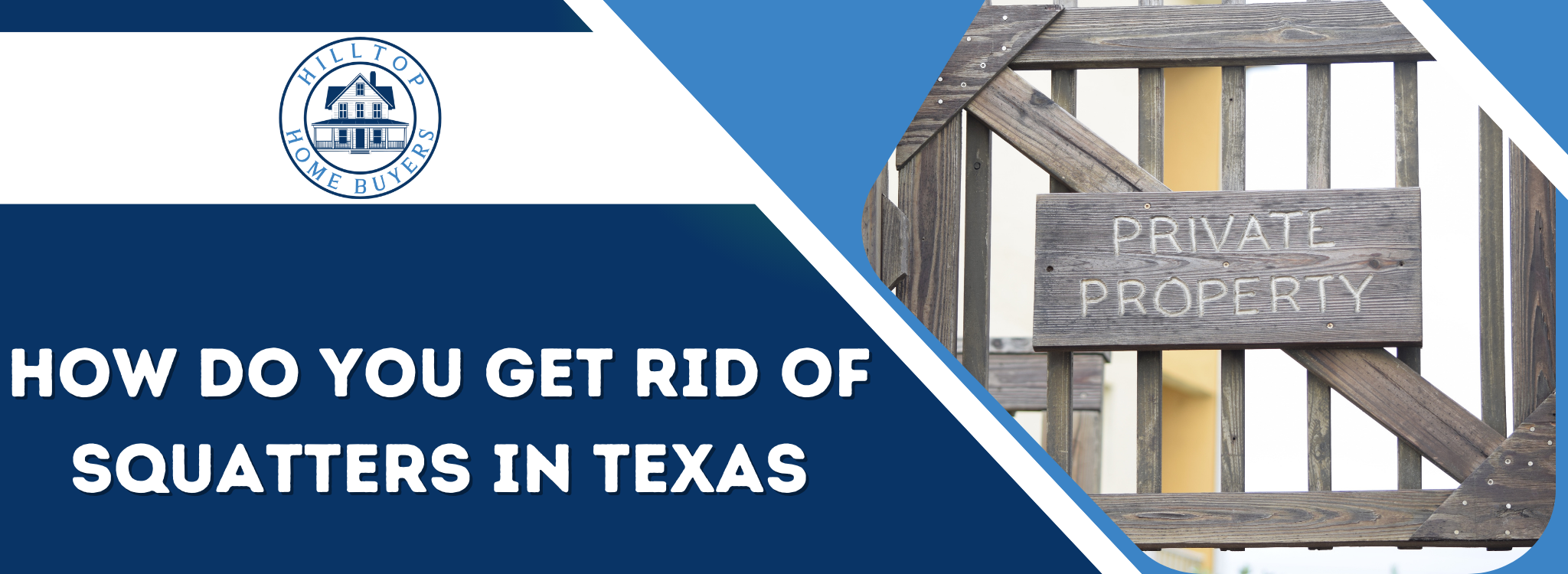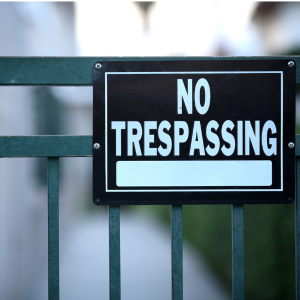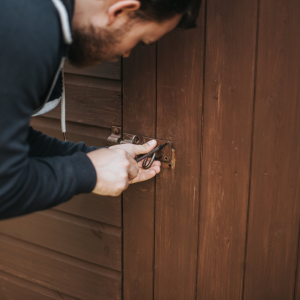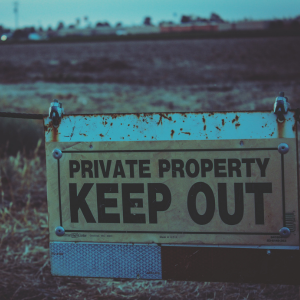
Steps to Legally Remove Squatters in Texas
Dealing with squatters in Texas can be very frustrating, especially for property owners. To protect your property, you must take certain formal actions to remove squatters. In Texas, you must follow a specific process to successfully remove squatters.
What Legal Actions Can Property Owners Take?
In Texas, property owners have different legal actions against squatters. Knowing your rights and the proper legal processes can help reduce the time spent dealing with squatters.

Filing for Eviction
- Understand the Eviction Process: To remove squatters, you need to understand the eviction process specific to Texas. This involves serving a proper notice and following the legal timeline.
- Landlord Rights:You must protect your rights as a property owner in Texas with squatters. You have the right to take legal action against tenants who have defaulted on their rental payments and who breach the rental agreement.
- Initiate Legal Action: If the squatter refuses to leave, file an eviction lawsuit in your local court. The court will then decide whether the claim against the squatters is legitimate.
Seeking a Court Order
- Court Involvement: Getting the court involved can result in a judgment for possession. A court order eviction in Texas provides the legal framework needed for the eviction of squatters.
- Unlawful Detainer: If squatters occupy your property without consent, you may want to consider filing an unlawful detainer suit. This provides a legal basis for the removal.
Engaging Law Enforcement Assistance
- Police Involvement: The police can assist in situations where squatters are committing criminal trespass. However, having a court order prior to police involvement is more beneficial.
- Criminal Trespassing: If squatters enter the property illegally, law enforcement can sometimes intervene directly, especially if there’s a safety risk.
How Does Adverse Possession Impact Removal?
Understanding Texas property laws regarding adverse possession is critical when dealing with squatters, as the legal principle of adverse possession can make removal more complicated.
Requirements for Adverse Possession in Texas

- Claimant Eligibility: A squatter can establish a right for adverse possession under Texas property laws if he/she can prove notorious and continuous possession for a certain period.
- Notorious Possession: The possession must be visible and is not concealed from the owner.
Timeframes Required for Adverse Possession Claims
- Statutory Duration: Texas has varying timeframes of 3-10 years depending on the situation. During this time period, the squatter’s possession has to be exclusive, continuous, and undisturbed.
Strategies to Challenge Adverse Possession Claims
- Asserting Property Owner Rights: To dispute an adverse possession claim, gather evidence controverting the squatter’s claim, such as proof of ownership and attempts executed to gain back control of the property.
- Legal Strategy: Use a solid legal strategy involving dispute resolution and legal evidence to assert property rights and defend against claims.
Property owners facing squatters in Texas can make better decisions with the help of the outlined procedures and strategies above. They can reach out to Hilltop Home Buyer for personalized advice and assistance.
Effective Strategies to Protect Your Property in Texas
Protecting your property in Texas requires a defined strategy and a robust security system. Strengthening the security of your property can eliminate unwelcome visitors and safeguard your valuables.
How Can Enhanced Security Measures Deter Squatters?
Advanced security measures focus on the prevention of squatters occupying your property. This includes the following:
- Installing Surveillance Systems
Improving property security starts with setting up surveillance systems. High-quality cameras can help guard the property, and their ability to capture unauthorized access can deter squatters. - Utilizing Motion-Activated Lighting
An example of a security feature that can be helpful for a property’s security system is motion-activated lighting. This feature activates lights in areas where it can sense movement to deter squatters by amplifying visibility and reducing places to conceal oneself around crucial entrances. - Securing Entry Points
Protecting entry points such as doors and windows is crucial to preventing squatters from illegally occupying your property. Employ security measures that make it challenging to lock and unlock doors and windows so that only designated individuals can access the property.

What Role Does Regular Maintenance Play in Deterrence?
Scheduled maintenance is crucial in keeping the property secure and visually appealing.
- Scheduling Frequent Inspections
Scheduled maintenance is an effective strategy for solving potential security problems. Regular maintenance helps to maintain a property’s facilities and services, which continually make it less appealing to unwanted guests. - Keeping Property Visibly Occupied
A property that appears visibly occupied is less appealing to potential squatters. Regular maintenance serves to enhance the perception that the property is in active use and surveillance. - Managing Landscaping and Cleanliness
Good landscaping and order enhance the squat deterrent effect of a property. Having a clean and well-maintained property signals that it is actively looked after and reduces the likelihood of squatting.
For expert advice and more property security tips, get in touch with Hilltop Home Buyer. We offer tailored strategies and resources to help enhance your property’s security and effectively deter squatters.
Understanding the Legal Framework for Evicting Squatters in Texas
What Are the Key Differences Between Tenants and Squatters?
In Texas, property owners must know the difference between tenants and squatters. A tenant is someone who has signed a lease agreement. This agreement allows them to live in the property and pay rent. Tenants have certain rights under Texas property law, which also sets rules for landlords.
Without permission or a formal agreement, a squatter resides in a property producing unauthorized occupancy. Unlike tenants, squatters do not have legal rights to be there, but a squatter may acquire some rights under the law “squatters rights” depending on how long they stay and other specifics.
It is crucial for landlords to know these distinctions to comprehend their rights and responsibilities.

How Do Texas Squatter Laws Affect Landlords?
Landlords in Texas face challenges with squatter laws that might impact their property rights. Texas squatter rights allow squatters to claim legal possession through adverse possession only after meeting strict conditions.
Key points for landlords:
- Anti-Squatting Laws: There is a strict Texas law on unauthorized occupancy.
- Eviction Process: Evicting squatters means following legal steps, starting with an unlawful detainer action.
- Legal Action Against Squatters: Eviction processes must be legally compliant and even then, some additional legal aid may be required.
Landlords have the rights of property owners and can thus take legal actions permitted by the law, albeit legally. This means that the landlord must comply with the eviction schedule and seek legal counsel to comply with the region’s legal expectations.
Landlords are able to protect their properties and their legal rights as long as they understand these processes and have the required legal knowledge.
If there are additional legal queries, Hilltop Home Buyers recommends that property owners seek out specialized property lawyers who can assist in dealing with such matters.
How Can a Lease Agreement Help in Preventing Squatting?
Property owners can effectively reduce unwanted squatters and safeguard tenant rights with a legally binding lease. With a properly drafted rental agreement, both the property owner and the tenant can know the do’s and don’ts, which leads to legal adherence and compliance and interminable squabbles.
Importance of Clear Terms and Conditions
Clear terms and conditions in a rental agreement are crucial for the property owner and tenant. A lease can minimize misunderstandings by clearly defining tenant rights and responsibilities and the consequences of non-compliance. Essential elements include:
- Rent Payment Schedule: Timely payments with no defaults guarantee the landlord a steady cash inflow, so setting payment dates and associated penalties is a must.
- Maintenance Responsibilities: A clearly set term regarding who is to undertake the repairs will go a long way in limiting disputes.
- Occupancy Limits: Designating who is to reside in the premises reduces the risk of unauthorized occupants.

Clear communication of these terms aids in fostering a good landlord-tenant relationship while ensuring that all legal boundaries are protected.
Including Provisions Against Unauthorized Occupancy
To hinder unauthorized occupancy of the premises, the lease agreement must contain some specific provisions. These may include:
- Strict Guest Policies: Restricting the time limit for non-tenant visitors to a specific period discourages squatting.
- Regular Inspections: Granting the landlord the right to perform routine checks on the premises helps ensure that lease terms are being followed.
- Explicit Consequences: Specifying legal measures that will be taken for breach of lease terms acts as a deterrent for unauthorized use of the premises.
Including these measures in the lease agreement helps to prevent squatters abuse and therefore helps the owners safeguard their properties.
What Are the Benefits of Hiring Property Management Services?
Property management services offer invaluable support to property owners by ensuring professional oversight and regular monitoring of rental properties. Engaging such services brings numerous benefits to landlords.
Professional Oversight and Regular Monitoring
Professional oversight provides peace of mind to property owners by ensuring consistent property management and compliance with relevant laws. Benefits include:
- Tenant Screening: Conducting thorough background checks reduces the risk of problematic tenants.
- Rent Collection and Record Keeping: Streamlined processes ensure financial transactions are accurately tracked.
- Maintenance Coordination: Promptly addressing repair issues enhances tenant satisfaction and property value.

Regular monitoring by experienced property managers helps maintain the property’s condition and protects owners from potential liabilities.
Expertise in Handling Unauthorized Entry Issues
Property management services possess expertise in dealing with unauthorized entry and other legal issues. Their knowledge allows for:
- Swift Legal Action: Experienced managers can navigate eviction processes if necessary.
- Conflict Resolution: Effective communication skills help resolve disputes amicably.
- Local Legal Compliance: Staying updated on regulations ensures property owners avoid legal pitfalls.
By leveraging these services, property owners can proactively address squatter-related challenges and focus on maximizing their investment.
If you need further assistance or have inquiries about protecting your property, consider contacting Hilltop Home Buyer for expert advice and resources.
The Role of Local Authorities in Handling Squatter Situations
When Should Property Owners Involve Law Enforcement?

Property owners should call the police when someone trespasses on their property. If a squatter refuses to leave after being asked, immediate police involvement is needed. Taking photos and notes can help with legal action for criminal trespassing cases. In Texas, removing squatters often requires working with local law enforcement to follow legal eviction procedures. Reporting the situation to the police creates a record that is helpful in future legal steps.
How Can the Court System Assist Property Owners?
The court system is crucial for dealing with squatters through legal means. Property owners can start an unlawful detainer or eviction suit to begin the official process. In Texas, getting a court order is key for legally removing squatters. This protects landlord rights and ensures state laws are followed. Once a court issues an eviction order, the time it takes to remove squatters can differ. If needed, the sheriff’s office will carry out the eviction. Working through the court gives property owners a clear and legal way to regain their property.
Hilltop Home Buyer is here to help you with squatter situations. Contact us for expert services and support to protect your property rights.
This information applies to Texas and its cities, including Irving, Plano, and Sherman. For assistance or questions, please call us at (833) 962-2274. You can also visit our website at Hilltop Home Buyer for more details.
FAQs:
- What are property owners’ rights when dealing with squatters in Texas? Property owners in Texas can take legal action to remove squatters. This usually means filing an eviction suit through the courts to regain property control.
- How can I legally evict squatters in Texas? To evict squatters legally, you must file an eviction case at the local justice court. You must serve an eviction notice that might involve law enforcement if required.
- Are there different rules for evicting squatters from abandoned buildings in Texas? Yes, while the eviction process is similar, you may need to prove ownership and show the building was unoccupied when dealing with squatters in abandoned buildings.
- Can a homeowner association (HOA) assist in removing squatters? An HOA might have security rules, but the eviction process still needs to go through the courts. Consult your HOA for any community-specific guidelines.
- What preventive measures can help prevent squatters on my property? Insurance, a security system, regular inspections, and good communication with neighbors can help deter squatters. Leasing properties to reliable tenants also helps prevent vacancies.
- Is police involvement necessary in squatter situations ? Police can help if there’s a breach of peace, but they usually need a court order to remove squatters. Following legal procedures is important because self-help eviction is illegal in Texas.
- Can adverse possession laws affect how squatters are removed in Texas? Yes, squatters might claim adverse possession if they’ve lived openly on the property for a long time. However, this is rare and has specific requirements, so acting quickly and legally is crucial.
- Should I hire an attorney to handle squatter eviction in Texas? It’s recommended that you hire an attorney. An attorney can guide you, prepare paperwork, and represent you in court if necessary.
Key Insights
- We provide expert guidance on evicting squatters in Texas, focusing on both residential squatting and trespasser removal through legal methods like peace court actions and filing eviction suits.
- Understanding Texas squatter rights is vital for property owners. Specific requirements for adverse possession claims are outlined under Texas housing law.
- Our team specializes in the formal eviction process, including serving eviction papers and obtaining a writ for sheriff-assisted evictions to remove unlawful occupants in Texas.
- Texas real estate law provides several legal actions against squatters, such as ejectment statutes and court-ordered evictions, to ensure secure property owner rights.
- Avoid self-help eviction methods in Texas. Instead, find lawful solutions, like hiring an attorney for professional eviction consulting.
- Homeowners associations (HOAs) often face squatting issues; we assist with removing squatters legally in Texas and resolving matters like unlawful detainer and landlord rights.
- Investors and lenders should be aware of squatting penalties in Texas, particularly with foreclosed properties. Taking proactive steps can prevent illegal squatting resolutions.
- Squatter laws in Texas 2023 stress quick legal action; our resources cover everything from eviction timelines to involving law enforcement for effective squatter removal.
- Protect your investment by learning how to handle squatters in abandoned buildings and avoid common mistakes with Texas anti-squatting laws.
- Contact us today for comprehensive help with squatter eviction notices, legal eviction services, and securing your Texas property.


